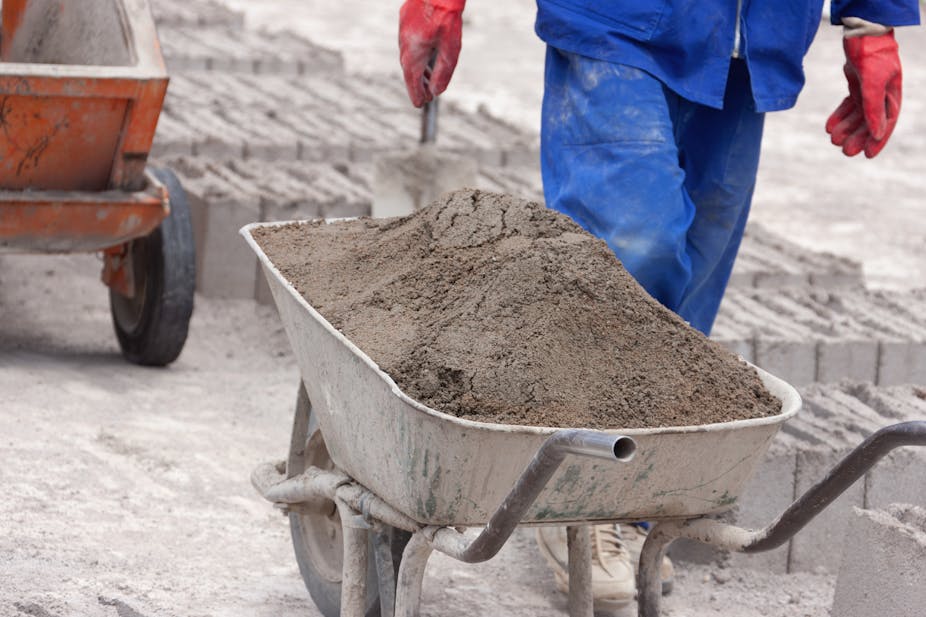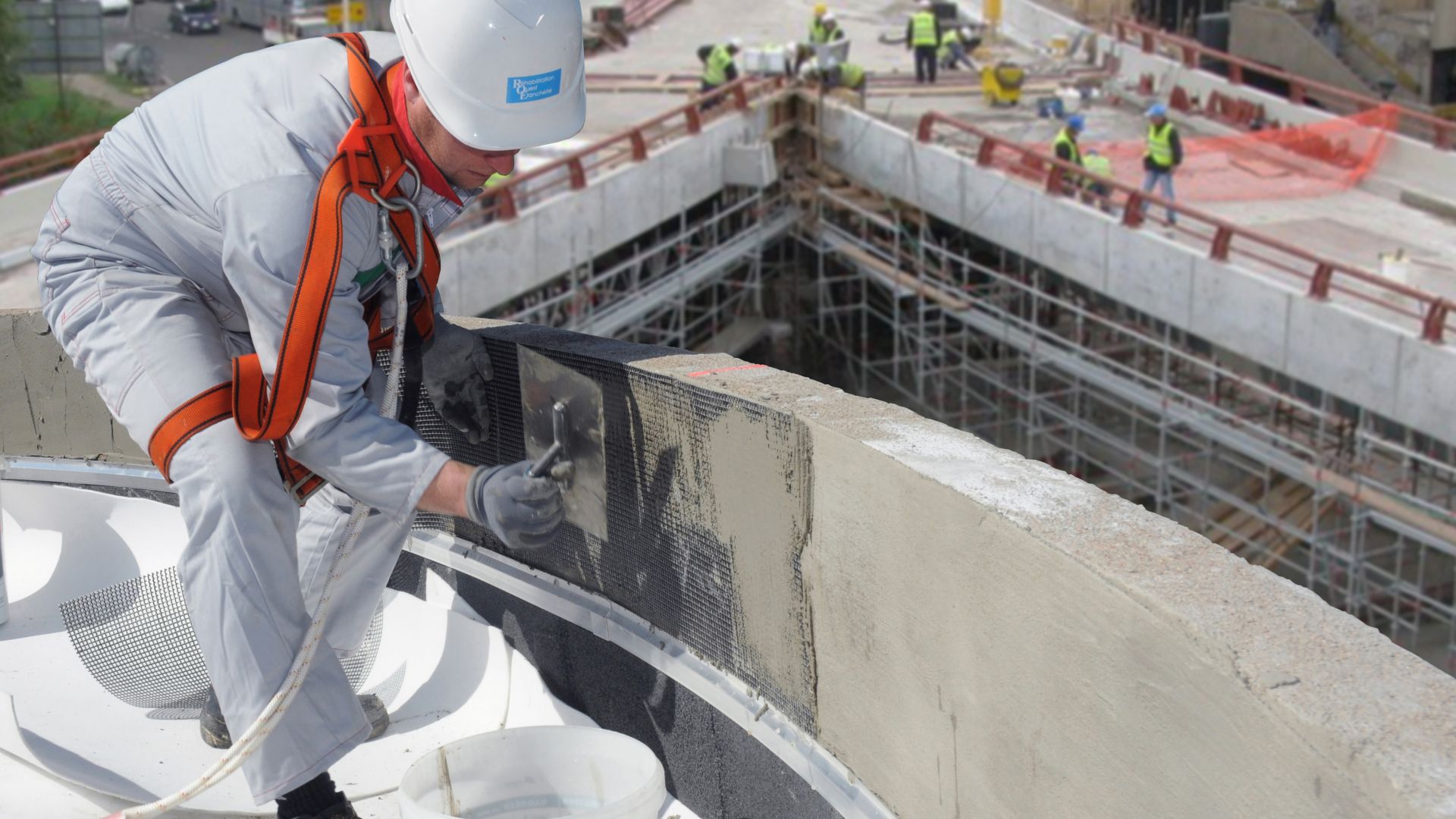How to Improve Your Project’s Lifespan with West Coast General Engineering industrial concrete
How to Improve Your Project’s Lifespan with West Coast General Engineering industrial concrete
Blog Article
The Essential Function of Concrete Structure in Structural Honesty and Long Life
When it comes to building a residential property, the structure is extra critical than you might believe. Concrete foundations supply unparalleled toughness and durability, ensuring your structure can withstand various environmental challenges. Without a solid base, you risk potential issues like shifting or breaking, which can compromise safety and value. Understanding the subtleties of concrete structures can be the trick to maintaining your financial investment for years to come. What should you take into consideration following?
Comprehending the Significance of Concrete Foundations
Concrete foundations are vital to the overall security of any type of structure, as they provide the essential assistance required to endure various lots and ecological conditions. When you think concerning developing a home or a commercial room, the structure is the very first point you must think about. It acts as an obstacle against moisture, shielding your residential property from water damage. A well-placed concrete structure likewise prevents settling and changing, which can result in splits in wall surfaces and floors. You'll wish to guarantee that the structure is correctly made and strengthened, as this influences the durability of your structure. Furthermore, a strong foundation can boost energy performance by decreasing air leakages. Remember, disregarding the significance of a concrete structure can result in pricey repairs down the line. So, spending in a quality foundation upfront is vital for the stability and toughness of your framework.
Benefits of Concrete Foundations for Architectural Honesty
While lots of factors contribute to a structure's architectural stability, concrete foundations provide unequaled resilience and toughness. You'll value that concrete can endure severe climate condition, withstanding both dampness and temperature fluctuations. This resilience suggests your structure is much less most likely to experience breaking or shifting with time, which can compromise its safety.Additionally, concrete's integral weight supplies a strong base, stopping activity throughout natural events like earthquakes or floods. When you choose a concrete foundation, you're also choosing for low maintenance; unlike wood, it won't rot or attract insects, saving you time and money in repairs.Moreover, concrete's fire resistance provides added security, ensuring your structure can endure heats without considerable damage. In general, buying a concrete foundation means you're prioritizing the lasting security and honesty of your structure, making it a smart choice for any construction task.
Usual Kinds of Concrete Foundations
When it pertains to developing foundations, understanding the usual kinds of concrete foundations can help you make educated selections for your job. The most widespread kinds include slab-on-grade, crawl space, and complete cellar foundations.A slab-on-grade foundation is a simple, cost-effective alternative, where a thick concrete piece is poured straight on the ground. This type works well in cozy climates, as it minimizes warmth loss.Crawl area foundations boost the home somewhat above ground, enabling air flow and access to pipes and electrical systems. This layout can assist prevent dampness issues.Full basement structures use additional living or storage room while offering excellent architectural support. They need more excavation and are commonly utilized in cooler climates to stop frost heave.
Aspects to Consider When Creating a Concrete Foundation

Best Practices for Setting Up Concrete Foundations
When you're installing a concrete structure, proper site prep work is necessary to guarantee security (West Coast General Engineering concrete foundation). You'll additionally need to comprehend support techniques to improve stamina and durability. Do not overlook the treating process, as it plays a basic duty in achieving a solid foundation.
Site Prep Work Relevance
Although it may seem straightforward, correct website prep work is essential for assuring a strong and resilient concrete foundation. Begin by removing the area of any kind of particles, greenery, or organic product that might endanger the structure's stability. Next, analyze the dirt type and compaction; you could require to excavate or include materials to create a secure base. Level the ground to guarantee also weight distribution and avoid resolving problems later on. Mounting appropriate water drainage systems is additionally necessary to protect against water build-up, which can weaken the structure in time. Mark out the foundation's measurements accurately to lead the pouring procedure. By following these actions, you'll set the stage for an effective concrete foundation that stands the test of time.
Support Methods Explained
When the website is correctly prepared, the following step in ensuring a tough concrete foundation includes implementing efficient support strategies. You must begin by using steel rebar, which supplies tensile toughness and helps stop cracking. Lay the rebar in a grid pattern, making sure it rises making use of spacers to maintain appropriate protection. In addition, consider utilizing cord mesh for extra support, particularly in locations based on hefty loads. Don't fail to remember to connect the rebar junctions firmly with wire. For larger foundations, fiber reinforcement can improve longevity, reducing the risk of shrinking fractures. Constantly comply with neighborhood building ordinance and standards to make certain compliance. By applying these reinforcement techniques, you'll significantly improve your structure's stamina and durability, laying a solid groundwork for your structure.
Treating Process Fundamentals
To guarantee your concrete foundation cures correctly, it is very important to preserve sufficient wetness and temperature conditions instantly after pouring. Start by covering the surface area with a damp cloth or plastic sheet to keep wetness. This keeps the concrete moisturized, protecting against fractures and making sure stamina. You must likewise keep track of the temperature; ideal healing problems are between 50 ° F and 90 ° F. If it's too warm, haze the surface routinely to avoid rapid dissipation. For chilly weather, consider making use of protecting blankets to keep warmth. Go for a healing period of a minimum of 7 days, as this is important for optimal toughness advancement. By following these ideal practices, you'll improve your foundation's durability and long life, ensuring structural honesty for many years to come.
Upkeep of Concrete Foundations for Durability
To keep your concrete structure strong and lasting, routine inspections are essential. You must also assure effective drain solutions remain in area to stop water damages. If you find any kind of cracks, resolving them without delay will save you from larger problems down stampcrete stamps the line.

Regular Evaluations and Assessments
While regular inspections and evaluations could appear like a duty, they're necessary for preserving the integrity of your concrete foundation. By routinely looking for cracks, shifts, or indicators of wear, you can catch potential concerns before they rise right into expensive repairs. Look for any kind of water pooling around the foundation or uncommon settling, as these can indicate underlying problems. It's additionally a good idea to monitor any kind of adjustments in your home's framework, like doors that stick or home windows that don't open efficiently. Keeping a document of your evaluations helps track adjustments in time, enabling positive maintenance. Inevitably, these evaluations guarantee your foundation remains steady, supporting the durability and safety of your whole structure. Do not overlook this important aspect of homeownership!
Reliable Drainage Solutions
Routine inspections can expose issues like drain troubles that might endanger your concrete foundation's stability. To protect against water build-up, assure your gutters and downspouts direct water away from the foundation. Installing French drains pipes can effectively redirect surface area and groundwater, decreasing pressure on your structure wall surfaces. Furthermore, grading the dirt around your home assists assure that water flows away, as opposed to merging near your foundation.Consider using sump pumps in locations vulnerable to flooding, as they actively get rid of excess water. Consistently inspect for obstructions in drainage systems and clear them immediately. You'll shield your foundation's stability and durability by taking these aggressive measures. Remember, efficient drain remedies are essential for maintaining a solid, durable concrete foundation.
Trigger Fracture Fixes
When you observe splits in your concrete structure, resolving them without delay is important for maintaining its durability. Little fractures can promptly develop into larger issues, compromising the structural integrity of your home. Frequently examine your foundation for signs of damage, such as horizontal or upright splits. If you detect any type of, don't wait-- repair them quickly. You can make use of epoxy shots or concrete patching substances, which work for sealing cracks. Always adhere to the supplier's guidelines and think about getting in touch with a specialist for substantial damage. Remember, prompt fixings not just improve your foundation's durability yet likewise save you money over time by stopping more extensive fixings down the line. Remain proactive, and your structure will remain solid and protected.
Addressing Usual Problems With Concrete Foundations
Concrete structures can face numerous concerns gradually, making it vital to recognize and address them immediately. Among the most common problems is cracking, which can take place because of temperature changes or settling dirt. If you notice splits, it's vital to analyze their dimension and depth; small fractures can often be secured, while larger ones may need specialist evaluation.Water breach is one more significant issue. Excess moisture can lead to mold growth and structural wear and tear. Assurance proper drain around your structure to reduce this threat. Furthermore, seek signs of moving or bowing wall surfaces, as this can show underlying issues with your foundation's stability.Regular examinations are basic to catch these problems early. If you identify any kind of concerning signs, don't wait to consult a foundation professional. By remaining aggressive, you can keep the integrity and longevity of your concrete structure, guaranteeing your home stays risk-free and safe.
Regularly Asked Inquiries
How Does Soil Type Affect Concrete Foundation Performance?
Soil type significantly impacts concrete structure efficiency. If you have actually obtained expansive clay, for example, it can cause shifting and breaking. Sandy soil might lead to working out. Comprehending your soil helps guarantee a steady foundation.
Can Concrete Foundations Be Repaired if Damaged?
Yes, you can repair broken concrete structures. Relying on the level of the damages, methods like epoxy injection or slab jacking can restore security. It's ideal to get in touch with a specialist for efficient services.
What Is the Common Lifespan of a Concrete Foundation?
A concrete structure commonly lasts 30 to 100 years, relying on aspects like soil conditions, environment, and upkeep. You'll want to keep an eye on it to assure it stays healthy throughout its life expectancy.
Are There Choice Products to Concrete for Foundations?
Yes, there are alternatives to concrete for foundations, like steel, hardwood, or perhaps recycled materials. Each alternative has special benefits and drawbacks, so you need to consider your project's certain requirements when choosing the appropriate material.
Just How Does Environment Impact Concrete Structure Toughness?
Climate substantially affects concrete foundation longevity (WCGE commercial concrete). Extreme temperatures, dampness, and freeze-thaw cycles can compromise the product, resulting in splits and structural problems. You need to consider regional environment conditions when preparing your structure to guarantee long-lasting efficiency
Report this page